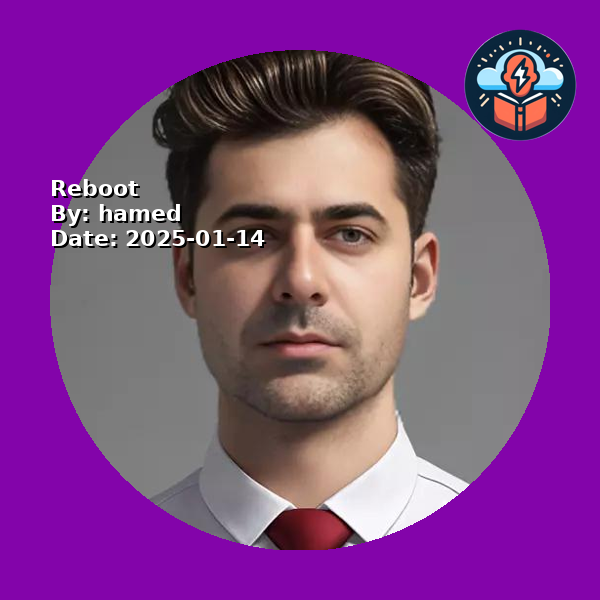Jamal’s fingers hovered over the keyboard, a moment of hesitation before he clicked “Submit” on the online course registration. He had spent hours staring at the screen, reading reviews of the “Introduction to Data Science” course. Was this really what he needed? Did he have time for this? He looked at the clock—5:30 p.m. His shift at the warehouse would start in a few hours, but it was his first day off in weeks.
He clicked it. Register. The words on the screen seemed to burn into him.
The job market was changing, everyone said so. And Jamal could feel it. A year ago, when the warehouse had invested in a new automated sorting system, it had seemed like a victory. Everything was faster, more efficient. The company had even promised bonuses for the workers who helped with the transition. But then came the layoffs. Slowly, like a creeping shadow, the machines had started taking over the repetitive tasks—the lifting, sorting, packing. The very tasks Jamal had done for over five years.
At first, he was confident he could keep up. He was a good worker, fast, reliable. But as the months passed, the changes became more drastic. The new system required fewer hands on deck. His supervisor’s nods were more out of habit than genuine approval.
“Jamal, keep an eye on the system, okay? Don’t need you doing the same work as before.”
But Jamal wasn’t stupid. He saw what was happening. He started hearing whispers about his colleagues, some of them older, some less adaptable, being let go. The warehouse was moving toward full automation, and with each step, there was less room for people like him. Less room for hands.
It had been hard to admit, but Jamal knew: he was becoming obsolete.
He sat back in his chair and rubbed his eyes, the faint glow of his laptop screen casting shadows in the dim room. His hands ached from years of hard work, but it was his mind that now felt strained, pulled tight with uncertainty.
He hadn’t planned to sign up for the course, but after talking to Maria, his friend from high school who’d managed to stay in a tech job during the shift to automation, something inside him had snapped. Maria had told him to start small. “You just need to learn to code,” she’d said. “If I can do it, you can.”
Jamal was skeptical, but he trusted her. He had never thought of himself as a tech person. He had always been practical, a man who worked with his hands. But it was clear now—his hands weren’t enough. He needed to think in a new way, learn new things.
He opened the course details and scanned them one more time. “Introduction to Python.” He had heard of it, but he didn’t know exactly what it meant. The world was moving fast, and he couldn’t afford to fall behind.
That night, Jamal sat with his laptop on his kitchen table, where the only light came from the buzzing fluorescent bulb above. He had barely used the computer for anything beyond browsing social media or checking his email. But now, it felt like his lifeline.
The first lesson was basic. Variables. Strings. Integers. At first, it felt like learning a new language. His fingers faltered over the keyboard, unsure where to place the right symbols. But then he saw a simple problem: Create a program to calculate the total cost of an item with tax included.
He took a deep breath and typed it out: item_cost = 100... tax_rate = 0.07... total_cost = item_cost + (item_cost * tax_rate).
For a second, nothing happened. His screen stayed blank.
Then the code ran, and the result appeared: 107.0.
Jamal blinked at the screen, a sense of wonder creeping up on him. It wasn’t much, but it was something. He could do this. He could learn. This was the start of something new, a skill that might actually keep him from disappearing into the noise of progress.
Days turned into weeks. Jamal’s routine had changed. Mornings were spent learning Python. Afternoons were for physical training—lifting, carrying, pushing, all the things his body had been used to for so long. Evenings were filled with lectures, exercises, and trying to understand concepts that felt foreign to him. Every now and then, frustration would creep in when a piece of code didn’t work, or when a concept just wouldn’t stick. But he persisted.
One evening, as Jamal worked through a module on data analysis, the familiar ping of his phone distracted him. It was a message from Maria: “Hey, check this out. There’s a warehouse automation manager position at TechLogix. They need someone who understands both logistics and data. You should apply.”
His heart skipped. It wasn’t the warehouse job he was used to, but it was a start. It was a chance to combine the work he had done for so long with the new skills he was learning. The new world wasn’t easy, but it was there, waiting for him to step in.
He clicked on the job listing, reading through the details. It seemed like the perfect blend of logistics and data science, exactly what he was striving to be: someone who understood both worlds, someone who could bridge the gap.
A year ago, Jamal would have never imagined himself in a role like that. A year ago, the idea of coding had seemed as distant as the stars. But now, as he typed out his application with newfound confidence, he knew that he was more than just a man trying to survive the machines.
He was learning to adapt. To grow. To become someone the machines couldn’t replace.
And that was the first step.
